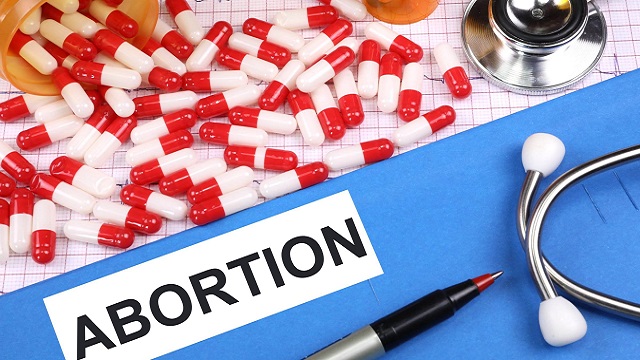In June 2022, the Supreme Court of the United States overturned the landmark Roe v. Wade decision that granted a constitutional right to abortion. Since then, many states have implemented new laws to restrict abortion access or ban abortion nearly entirely. These laws not only limit reproductive autonomy but also limit individual’s access to treatment for various health conditions and that includes cancer as well.
Now, along with the patient and the oncologists the government is also involved in the discussion about treatment plans and cancer care. This makes an already difficult process all the more difficult.
Patients in states with anti-abortion laws run a risk of not getting access to radiation therapy, chemotherapy, and other treatment methods that might be harmful for the foetus. This might include impeding the fetal development or potentially causing miscarriage.
Multiple organisations have issued statements urging lawmakers to protect cancer care access for pregnant patients. Discussion about abortion ban and cancer care and how it affects the well-being of patients is necessary.
Why is a discussion about cancer treatment and abortion laws necessary?
Cancer care givers are turning patients away if they are pregnant. Physicians fear that they run the risk of being criminalised if they provide care for that individual. There is a very real threat of going to jail by providing proper treatment and doing what is right for the family.
Not all treatments are safe for fetus
According to a report by American Cancer Society, about 1 in 1000 pregnant women receive cancer diagnosis every year in the US.
Early treatment is often essential to prevent death from cancer, especially in the case of fast-growing cancers that can rapidly spread from one part of the body to another.
However, many people need types of cancer treatment that may not be safe for a developing fetus. For example, radiation therapy can restrict fetal growth, cause fetal defects, and raise the risk of miscarriage. Chemotherapy may also harm a fetus, particularly in the first trimester of pregnancy.
Certain targeted therapies and immunotherapies may also have harmful or unknown effects on fetal development as well. The fetal effects of many of new cancer treatments are unknown because pregnant women are excluded from clinical trials.
Limiting treatment options
Those who require cancer care that could harm a fetus often face a difficult decision: terminate the pregnancy and get treatment right away, get immediate treatment while risking harm to the fetus, or delay treatment until later in pregnancy or following childbirth.
Delays in treatment raise the risk that cancer could spread and become harder to treat.
If a pregnant person cannot access abortion, their cancer treatment options are narrowed.
Cancer care providers may be reluctant or unwilling to provide treatment that could harm a developing fetus or result in miscarriage, particularly if they live in a state where abortion has been restricted or banned.
Some anti-abortion laws include exceptions for cases when the health or life of a pregnant person is in danger, but it’s not always clear when those exceptions apply.
Cases of delayed cancer care
After Roe v. Wade was overturned, Ohio implemented a bill to ban abortion after a fetal heartbeat is detected, which usually happens around 6 weeks of pregnancy.
That law is currently on hold, due to a court challenge from abortion providers.
But affidavits from the suit report that while the bill was in effect, multiple pregnant women were denied cancer treatment until they could travel out of state for an abortion.
Some types of cancer grow so quickly that even traveling out of state might create life-threatening delays in care. Apart from that, some cancers grow faster when pregnancy is involved due to the surge of hormones in the body. This might prove fatal for a patient if treatment is delayed.
Fertility preservation is at risk
Some types of cancer treatment can lead to infertility. As a result, young cancer patients who want to have children in the future may undergo fertility preservation. The most effective method of fertility preservation is to create an embryo through in vitro fertilization and freeze it until a patient is ready to get pregnant.
While one can freeze sperm and you can freeze eggs, that has a much lower chance of actually preserving someone’s fertility as opposed to creating and storing an embryo. Typically, more embryos are created and frozen than can actually be used, which means that some embryos may be destroyed.
The ACS worries that current or future laws that restrict reproductive healthcare may pose legal barriers to fertility preservation methods that create embryos that may be destroyed later on.
“Fertility preservation is an essential component of cancer care for patients diagnosed with cancer at reproductive age,” stated the ACS in a September press release. “The SCOTUS ruling could potentially interfere with fertility preservation of [adolescent and young adult] cancer patients due to new restrictions on genetic testing, storage, and disposal of embryos, including those created in vitro.”
Research shows that women are more likely to seek health care when they become pregnant. That means patients may not even learn they have cancer until they come in for their first prenatal visit. Although a parent with cancer may survive long enough to give birth, that parent might die. Whenever possible, physicians have always strived to treat the patient’s cancer and preserve the pregnancy. When those goals conflict, there are gut-wrenching trade-offs that the pregnant women have to make. If termination is off the table one of the options to manage the disease is completely removed. Abortion ban and cancer care is something that is not getting enough attention and it is high time that it does.




 Ms Kalinga
Ms Kalinga